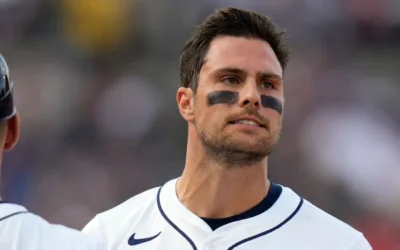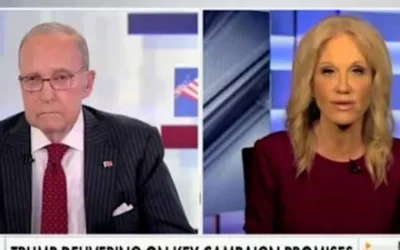Justin Thomas’ Personal Insights
In a world where professional golf has split into segments of age, talent, and experience, the stars often find themselves navigating a path filled with inspiration, competition, and at times—notably—jealousy. Recently, Justin Thomas, one of golf’s brightest talents, opened up about his motivations and personal revelations in the wake of Rory McIlroy’s achievement of the Grand Slam.
McIlroy’s Grand Slam: A Source of Reflection
Rory McIlroy, having achieved significant success on the PGA Tour, has become a symbol of excellence in golf. His recent Grand Slam victory reignited discussions on what it means to be a complete golfer. For Justin Thomas, McIlroy’s achievements served as a pivotal reminder of his personal goals. In an interview following the Masters, Thomas expressed how he was reminded of his aspirations to win all four major championships, thereby completing his own Grand Slam.
“When you see Rory winning and accomplishing that feat, it makes you look in the mirror and evaluate what you want to achieve,” Thomas remarked. This acknowledgment of rivalry doesn’t just manifest as admiration; it also leads to a certain level of professional jealousy—a sentiment that many top athletes are familiar with. While it might sound simplistic, the reality is that jealousy can act as a catalyst for many players’ performances.
The Powerful Role of Jealousy in Golf
Professional jealousy, while often considered a negative trait, can instill a strong drive for improvement and excellence. Thomas acknowledged that many players on the PGA Tour use it as fuel.
“It’s natural to feel jealous of what others have accomplished, especially when you’re gunning for the same honors,” said Thomas. “But I think it drives you to be better. It pushes you to work harder, practice more, and focus on the aspects of your game that need improvement.” With the golf world’s dynamic nature, where players like McIlroy, Scottie Scheffler, and Jon Rahm consistently elevate their games, this professional jealousy can trigger an intense internal competition.
Understanding the Roots of Professional Jealousy
But where does this professional jealousy stem from? For many athletes, it’s woven deeply into the fabric of competition. Each tournament exposes players not only to the environment of pressure but also to the skills and achievements of their peers. It’s not just the wins that create these emotions—it’s the statistics, the records, and the primes of other players against which they measure their own performance.
McIlroy’s Grand Slam highlighted the barriers that players like Thomas face when thinking about competitiveness. Prior to McIlroy, players like Tiger Woods dominated the conversation around belonging and legacy, setting an incredibly high bar for those who came after. Thomas openly discussed his admiration for Woods, describing him as a beacon for aspiring golfers, and yet, viewing his achievements also brings about a sense of urgency. “I want to leave my mark on the game, and that hit me hard when I watched Rory,” he said.
Channeling Jealousy into Motivation
Turning feelings of jealousy into productivity is where the skill lies. Thomas’ sentiment resonates with many athletes across sports, suggesting that the first step is acknowledging what they need to improve upon. With golf, given its individual nature, this becomes a little more complicated. Every swing, every putt is scrutinized, often leading to heightened tensions among even the friendliest competitors.
Instead of retaliating against those emotions, Thomas promotes embracing them as a part of the game. “I think it’s okay to feel that way,” he stated. “What matters is how you respond to it. You channel that energy into your practice sessions, your rounds, your approach to the game.” In this sense, professional jealousy acts like a flame that can either burn out of control or be contained and harnessed.
Lessons From Professional Rivalries
Other golfers on the PGA Tour share similar sentiments. Fellow tour players discussed the importance of rivalry that cultivates better performance. They understand that while jealousy exists, it is often balanced by respect and camaraderie—elements crucial for the sport’s integrity.
Brian Harman, who has been a steady performer on the PGA Tour, expressed his take on the issue: “We all want to win, and we all respect one another. But there is a fine line where that rivalry fuels not just the desire to win but the insistence on improving as well.” Harman’s experience echoes Thomas’ message, emphasizing an understanding of pressure as a way to drive healthy competition.
Future Aspirations for Justin Thomas
As the PGA Championship approaches, Thomas continues to refine his game while using McIlroy’s recent success as a beacon. “I want a Grand Slam,” Thomas reiterated in a recent press conference. “I’m willing to put in the work to achieve that.” This assertion goes beyond mere words; it reflects a deep-rooted commitment to his craft.
With each tournament, Thomas channels the spirit of rivalry, using McIlroy and others as benchmarks for his own success. With fierce determination, he considers every event an opportunity to improve and inch closer to his goal.
A Mindset for a Competitive Landscape
The paradigm of professional golf is constantly evolving, driven by youthful exuberance and the relentless pursuit of excellence. Athletes like Thomas are at the crux of this evolution, proving that professional jealousy is a double-edged sword—if harnessed rightly, it exposes the path to greatness.
For in an arena as competitive as this, recognition of both desire and rivalry molds a player not only on the course but off it, creating a holistic approach to the game of golf.
Conclusion: The Power of Motivation through Rivalry
As Justin Thomas steps into the next tournament, he carries with him a renewed sense of purpose catalyzed by McIlroy’s accomplishments. The journey of a professional golfer is lined with aspirations, rivalries, and the latent power of motivation—elements that fuel not just individual success but also an ongoing quest for excellence within the sport itself.







